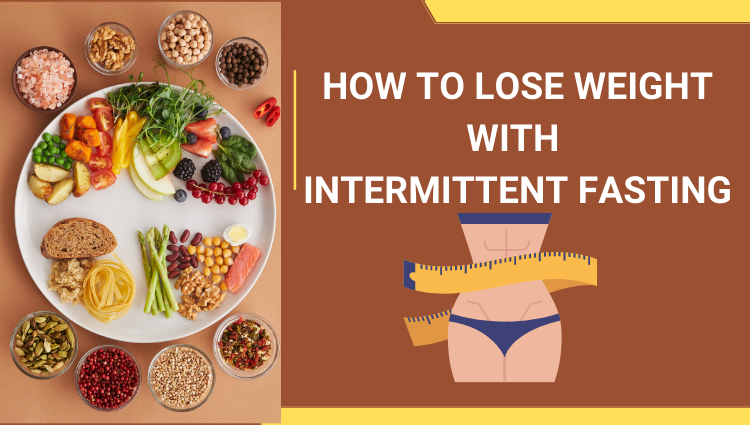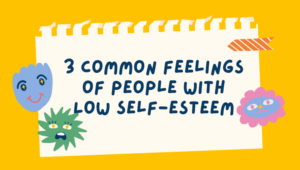Looking to lose weight but don’t want to give up your favorite foods?
Intermittent fasting may be the answer! This popular weight loss method can help you lose weight without having to give up your favorite foods or feeling hungry all the time.
If you’re interested in trying intermittent fasting to lose weight, read on for some tips on how to make it work for you.

What Is Intermittent Fasting?
Intermittent fasting is an umbrella term for various eating patterns that involve not eating for certain periods of time. There are a lot of different ways to do intermittent fasting, but the most common approach is to fast for 16 hours and eat for 8 hours. This is also sometimes called the 16/8 approach.
For example, you could stop eating at 8 pm and then not eat again until noon the next day. This would give you an 8-hour eating window from noon to 8 pm.
Other common intermittent fasting approaches include the 5:2 diet, which involves eating normally for five days a week and restricting your calories to 500-600 for two days, and the Warrior Diet, which involves eating one big meal at night and fasting during the day.
The Pros & Cons Of Intermittent Fasting
Intermittent fasting has become a popular way to lose weight, but is it right for you? Here’s a look at the pros and cons of this diet trend.
The Pros of Intermittent Fasting
There are a few potential benefits of intermittent fasting, including weight loss, improved insulin sensitivity, and reduced inflammation.
1. Weight Loss
Intermittent fasting can lead to weight loss by creating a calorie deficit. When you fast, your body is forced to use stored energy in the form of fat for fuel. This can lead to weight loss, especially if you are also following a healthy diet.
2. Improved Insulin Sensitivity
Intermittent fasting can also improve insulin sensitivity. This is because fasting causes your body to release less insulin in response to glucose. This can be beneficial for people with diabetes or prediabetes.
3. Reduced Inflammation
Intermittent fasting may also help to reduce inflammation. This is because fasting can help to reduce levels of inflammatory markers in the blood. This could be beneficial for people with conditions like arthritis or Crohn’s disease.
The Cons of Intermittent Fasting
There are also a few potential drawbacks to intermittent fasting, such as hunger, headaches, and low energy levels.
1. Hunger
One of the biggest potential drawbacks of intermittent fasting is hunger. When you are fasting, your body is in a state of deprivation, which can lead to feelings of hunger. This can be difficult to deal with, especially if you are trying to fasting for weight loss.
2. Headaches
Headaches are another common side effect of intermittent fasting. This is likely due to dehydration and low blood sugar levels. If you experience headaches while fasting, be sure to drink plenty of water and eat small snacks or meals every few hours to keep your blood sugar levels stable.
3. Low Energy Levels
Another potential downside of intermittent fasting is low energy levels. This is because your body is not getting a steady supply of nutrients and energy from food. If you are feeling tired or sluggish while fasting, be sure to eat small meals or snacks every few hours to keep your energy levels up.
Intermittent Fasting Approaches
The 16/8 Approach
The 16/8 approach to intermittent fasting involves fasting for 16 hours each day and eating all of your food within an 8-hour window. This can be done by skipping breakfast and eating lunch and dinner within a 8-hour window, or by eating your last meal of the day early in the evening and fasting overnight.
There are a number of different ways to approach the 16/8 intermittent fasting protocol, but the most common and straightforward approach is to simply restrict your eating to an 8-hour window each day.
If you’re new to intermittent fasting, the 16/8 approach may be a good place to start. It’s a relatively simple and straightforward approach that can be easily incorporated into your daily routine.
The 5:2 Approach
The 5:2 approach is a great way to make intermittent fasting easier to stick to, and it can help you see even better results. The 5:2 approach to intermittent fasting is simple: you eat normally for 5 days of the week, and then fast for 2 days. On the fasting days, you eat a very small amount of calories, usually around 500-600. This can be done by skipping breakfast and lunch, or by eating a very small dinner.
There are a few different ways to do the 5:2 approach. You can fast for 2 days in a row, or you can space the fasting days out throughout the week. I personally like to space the fasting days out, so I don’t feel like I’m depriving myself of food for too long.
6 Tips Before You Start Intermittent Fasting
If you’re thinking of giving intermittent fasting a try, there are 6 tips you should know before you start.
1. Make sure you’re getting enough calories
When you’re fasting each day, it’s important to make sure that you’re getting enough calories to meet your energy needs. If you’re not eating enough food, you may experience fatigue, irritability, and other negative side effects.
To make sure you’re getting enough calories, make sure to eat a balanced diet that includes plenty of fruits, vegetables, whole grains, and healthy fats.
2. Drink plenty of water.
When you’re fasting, it’s important to stay hydrated. Drink plenty of water throughout the day to keep your body properly hydrated.
3. Avoid eating late at night.
Eating late at night can make it more difficult to fall asleep and can also disrupt your natural sleep cycle. If you’re trying to stick to the 16/8 intermittent fasting approach, avoid eating late at night.
4. Avoid processed foods.
When you’re intermittent fasting, it’s important to focus on eating whole, unprocessed foods. Processed foods are often high in unhealthy ingredients that can sabotage your weight loss efforts.
5. Don’t overdo it.
If you’re new to intermittent fasting, it’s important to start slowly and increase your fasting hours gradually. Don’t try to do too much too soon or you may burn out and give up on the approach altogether.
6. Talk to your doctor
As with any major change to your diet, it’s always a good idea to talk to your doctor before starting intermittent fasting.
They can help you determine if it’s a good idea for you, based on your overall health and any medications you’re taking.
Conclusion
Intermittent fasting can be a great way to lose weight, but it’s not right for everyone.
If you’re considering trying intermittent fasting, speak with your doctor to see if it’s right for you.






